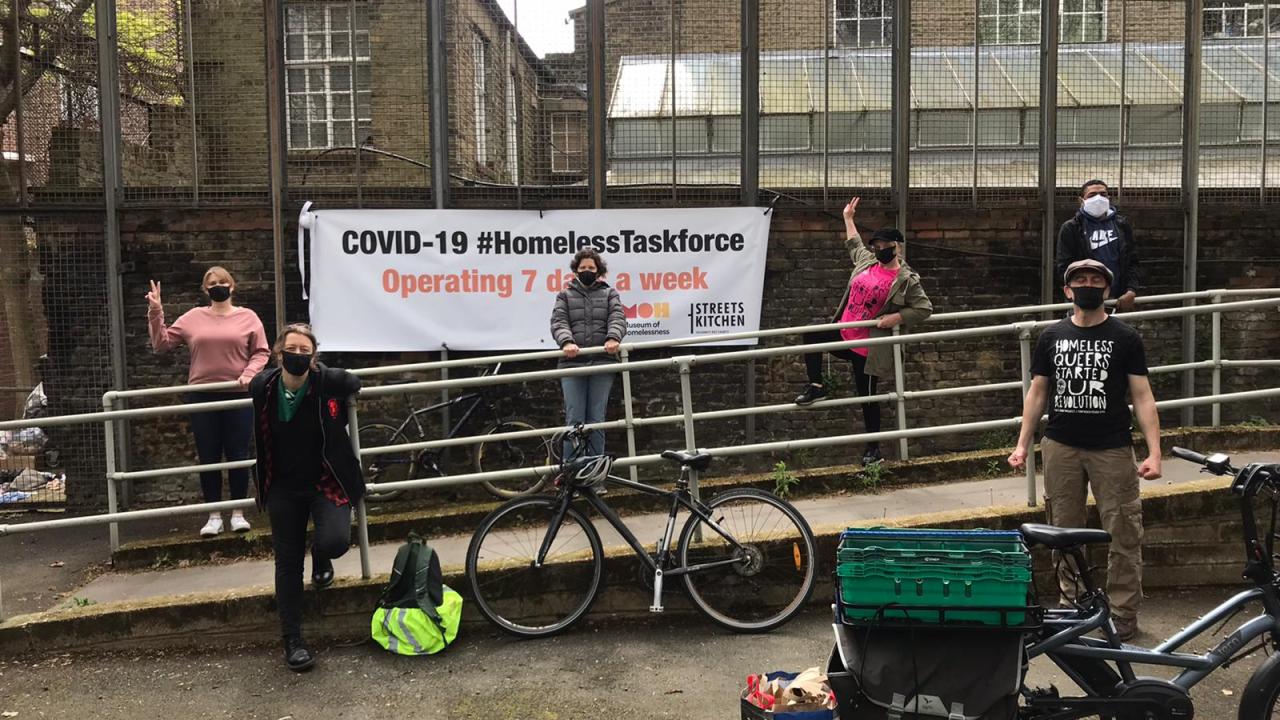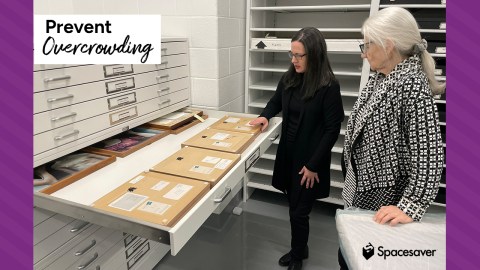
The COVID-19 pandemic has revealed gaping holes in the systems that should shield communities from harm. Patching the frayed social safety net will require government, private, and non-profit sectors to work together, going beyond their usual remits to do whatever needs to be done. Museums can play a significant role in this joint effort to protecting vulnerable populations. Today’s guest post offers a case in point, as Jess Turtle, co-founder of the Museum of Homelessness in the UK, tells us how she and her colleagues are rising to this challenge.
–Elizabeth Merritt, VP Strategic Foresight and Founding Director, Center for the Future of Museums, American Alliance of Museums
In March 2020, as museums closed their doors and the streets of London emptied, we had a desperate situation on the streets. My community members and I at Museum of Homelessness immediately began to take action to protect our street homeless and vulnerably housed population. It was far from clear what form those actions should take. For example, we introduced temperature screening at our regular weekly solidarity drop in run with our partners Streets Kitchen but quickly realised that if one of our community members was to present with symptoms, there was no way they could self-isolate. Faced with silence from the authorities, we had to create our own guidance in order to save lives.
It was in this climate that we repurposed all our activity and resources to campaign for government assistance and to provide direct support to our community. Two weeks before the UK government informed local authorities that they needed to bring everyone inside, we and our partners Streets Kitchen published a plan to utilise empty hotel accommodation for people who were street homeless. This was subsequently adopted as national strategy. We wrote to the Secretary of State to ask that the closed Mildmay Hospital in London be brought back into use for COVID care for homeless people. The hospital now provides that specialist care for our community.
Since Museum of Homelessness was founded in 2015, our work has brought us into contact with London homelessness health teams, the Government’s Rough Sleepers initiative, local partners in Islington and grassroots groups across the UK. Drawing on those grassroots connections, we co-created the COVID-19 Homeless Taskforce, teaming up with our long term partners Streets Kitchen, the Outside Project, Simon Community, Union Chapel and joined byGreenpeace, 2 local mutual aid groups, and many others. With our normal cultural activities placed firmly on the back-burner, we borrowed a vacant community centre from the council to launch a 7-day-a-week pandemic response operation. We even re-purposed our museum shelving to store dried goods and cans.
All of this happened in just three short weeks.
Over the course of the summer, over 50 taskforce volunteers pitched in. Together, we dispatched almost 9,000 meals to people in temporary accommodation and on the streets. We were present on the streets every single day. Our mission was simple: To ensure that no one in our community had to face the pandemic alone.
In July, as lockdown eased, the council asked for their borrowed community centre back. But the pandemic is far from over and we face what may be the the worst winter on record for homelessness. It is imperative that our work continues. We are seeking the museum’s “forever home,” but in the meantime, lacking a building, we have set up on the streets. Every Thursday between 12 and 2pm people can visit our StreetMuseum to engage with our collections and spend some safely distanced and well-ventilated time together. We also share hot meals from this site across the borough with people who are living or working at street level.
Some people may question why a museum is carrying out frontline work or campaigning on policy issues. To us, it is simply common sense. Museum of Homelessness is run by people who either are or have been homeless, and has the interests of people who are homeless at its heart. When the biggest crisis of a generation hit our shores, how can we not use every ounce of energy to take care of each other?
Some museums currently face their own crisis—the painful re-evaluation of their histories and identities as 19th century colonial institutions. As a new museum, Museum of Homelessness is lucky has the opportunity to make a museum for the new century unburdened by history. So far it seems to us that a 21st century museum is sometimes an exhibition, sometimes an emergency aid hub, sometimes a law clinic, sometimes a bloc in a march. There are key qualities that you will often find in people who are homelessness – resourcefulness, adaptability, creativity. These are qualities that we find in our museum as well, no doubt instilled in it from our community members and they are qualities that help us all survive.
Follow the work of the Museum of Homelessness on Twitter, Facebook, website, and blog.








